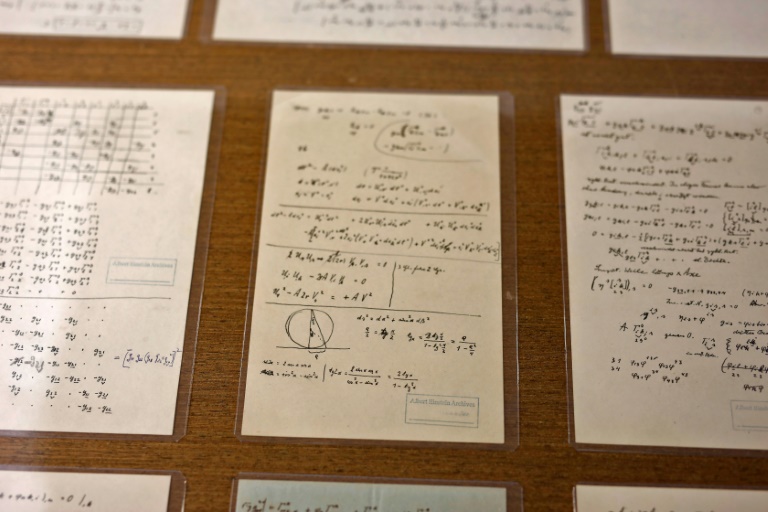Einstein’s Missing Page Finally Revealed: A Twist of Genius
Imagine having a puzzle that’s been stuck in the works of Albert Einstein for decades—then someone pulls it out of a dusty drawer and says, “There it is!” That’s exactly what happened this week at Jerusalem’s Hebrew University.
What’s New?
- New discovery: A handwritten page from a 1930 appendix on a unified field theory pop‑up.
- Location: Hidden in a 110‑page trove that just got on the university’s “Einstein Archive” shelf.
- Timing: The reveal lines up with what would have been Einstein’s 140th birthday—March 14 in 1894.
The Trove’s Essence
The bulk of the documents are Einstein’s hand‑written calculations from the late 1940s—basically his research notebook for a life‑long quest: unifying gravity, electromagnetism, and everything else into one tidy theory.
There’s also a more personal side: letters John‑Vincent’d by Einstein to friends, colleagues, and his own son, Hans Albert. One letter, dated 1935, expresses his worries about the Nazis rising in Germany—an early glimpse into his political conscience.
Why This Page Matters
For years researchers had copies of the appendix, but one page was missing. Professor Hanoch Gutfreund, a former university president and Einstein’s archival adviser, described the situation as a “puzzle.” Until now, the missing piece was more theory than fact.
Now, it’s sitting in front of scholars: “It came with the new material,” Gutfreund said, half‑smiling. “We’re excited!”
How the Trove Came to the University
- Donated by the Winston‑Crown Good‑Man Foundation in Chicago.
- Initially owned by Dr. Gary Berger, a North Carolina physician known for his private Einstein collection.
- The donation landed on the university’s desk through a scramble of careful cataloguing.
Why This Is Worth Grabbing Attention
Einstein is remembered for the “big name” in physics, but these pages reveal the guy’s hands‑deep grind and his relentless pursuit—over thirty years of hard, lonely work trying to snap the universe’s forces together.
For historians and science fans alike, the newly found page adds a fresh puzzle piece to an already intricate story: a real-life detective story about a genius missing a vital page of genius.
And that’s the kind of thing that makes scholars, students, and even your morning coffee feel a little more exciting, don’t you think?

Einstein’s Papers Finally Find a Home—And a Little Bit of Drama
Picture this: 140 years since the brainiac Einstein was born, and a bunch of his actual manuscript pages are now hanging proudly in the Hebrew University of Jerusalem. It’s like finding a dusty treasure chest in your attic—and the scholars are cheering.
The Secret Sale
- Gutfreund, the museum curator, kept the price of the 110 papers under wraps. We’re not spilling the beans, but it’s clear he wanted to keep the focus on the science.
- Einstein wasn’t just a genius; he was also a co‑founder of the university and served as a “non‑resident governor.” That’s fancy for a part‑time boss.
From His Vault to the Vault of the People
When Einstein passed away in 1955, he left the Hebrew University an amazing collection—82,000 items, the biggest Einstein archive in the world. The new acquisition? A birthday gift not only to the public and scholars, but to Einstein himself. “All the material here goes where he wanted it to go,” Gutfreund remarked.
Digitized and Ready for Research
Grosz and his team have already digitized the collection. Researchers are diving into it, hunting for new insights. Even though high‑quality digital copies are freely accessible, the originals hold a “special magic” that can’t be replicated.
Einstein, the Human Behind the Myth
Einstein’s reputation as a celebrity think‑er has only grown. Grosz predicts the legend will keep on rolling. He says:
“Einstein is the go‑to guy everyone wants to identify with—no chaser. He was also a colorful person, not just a brilliant mind. That combination is rare in science.”
His personal letters give us a peek into the man behind the equations. In one note to his son, he mused:
“In Germany things are slowly changing. Let’s hope we don’t have a war in Europe first. The rest of Europe is finally taking this seriously, especially the British.”
In short, Einstein was more than just relativity—he was a person with hopes, doubts, and a pretty eye for humor. These papers remind us that even the greatest minds have lived and breathed in unfiltered ways.




